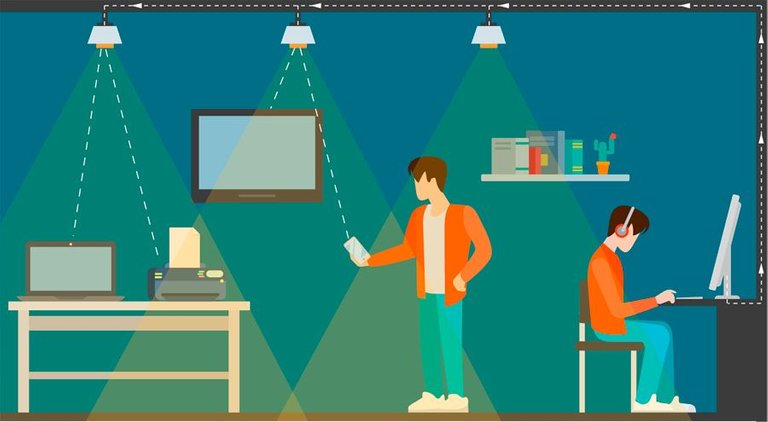Li-fi to replace WiFi 100 time faster and cheaper.
Technology is changing so our Wireless Internet, a new method of delivering Internet, which uses the LED lights to transmit Internet signal is coming soon. It is called Li-Fi.
Li-fi can deliver internet access 100 times faster than traditional WI-FI, offering speeds of up to 1Gbps (gigabit per second). It requires a light source, such as a standard LED bulb, an internet connection and a photodetector which act as receiver.
Currently, it is been only tested in the labs and offices, to allow workers to access the internet.

The term Li-Fi was first coined by Prof Harald Haas from Edinburgh University, who demonstrated the technology at a Ted (Technology, Entertainment, and Design) conference in 2011.
Prof Haas described a future when billions of light bulbs could become wireless hotspots.
One of the big advantages of Li-Fi is the fact that, unlike Wi-Fi, it does not interfere with other radio signals, so could be utilised on aircraft and in other places where interference is an issue.
While the spectrum for radio waves is in short supply, the visible light spectrum is 10,000 times larger, meaning it is unlikely to run out any time soon.
But the technology also has its drawbacks - most notably the fact that it cannot be deployed outdoors in direct sunlight, because that would interfere with its signal.
Neither can the technology travel through walls so initial use is likely to be limited to places where it can be used to supplement Wi-Fi networks, such as in congested urban areas or places where Wi-Fi is limited, such as hospitals.
In the recent news Apple is planning to include a Li-Fi capability in their future iPhone, meaning it can access high speed internet using the LED lights around us.
The iPhone’s operating system now openly reference Li-Fi capability in its programming code.
The technology will reach consumers within three to four years.
Here is YouTube video of this technology.
Hi! I am a robot. I just upvoted you! I found similar content that readers might be interested in:
http://www.bbc.com/news/technology-34942685
thank you very much! I know this technology in the pipe for a long time but it is going to come soon.